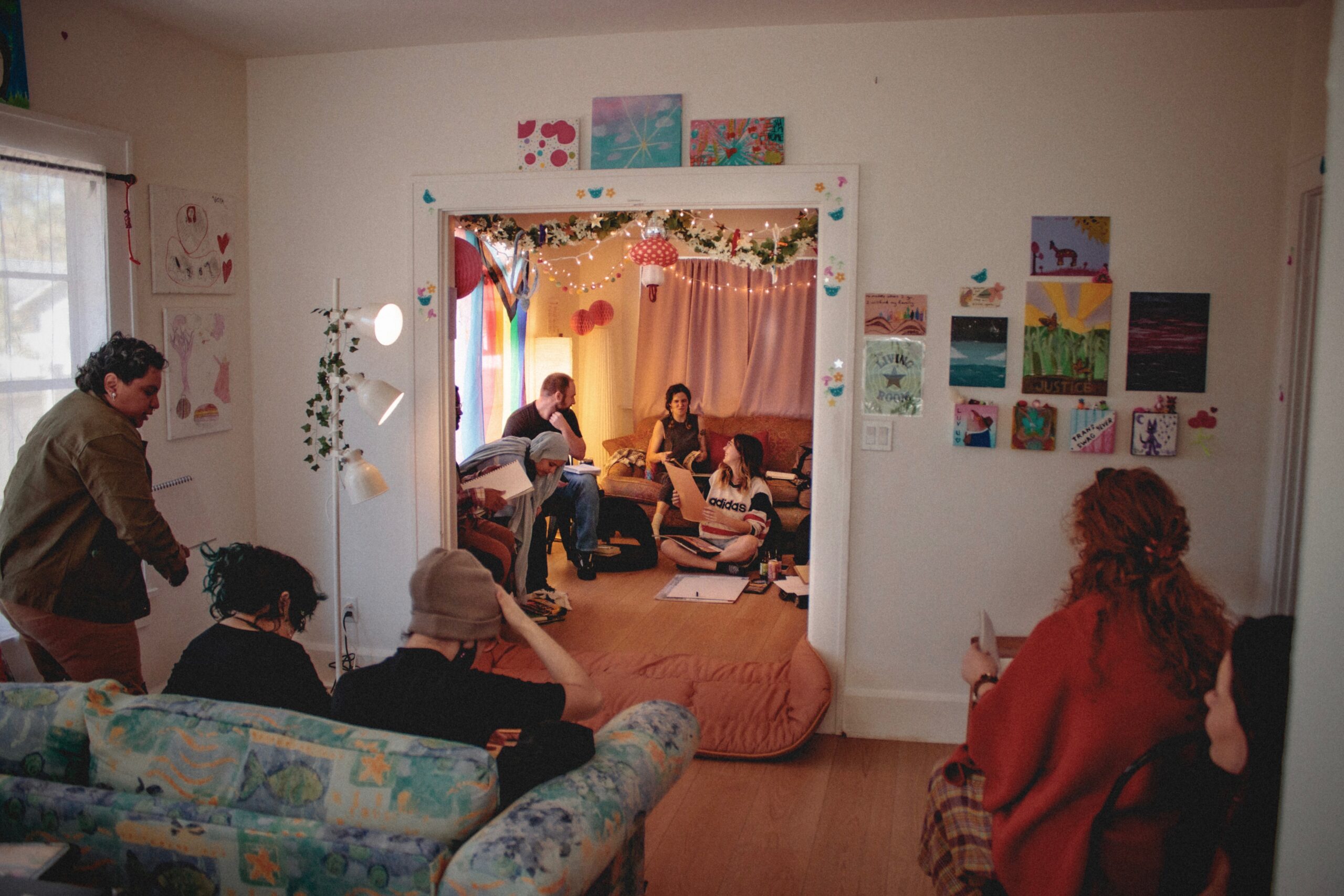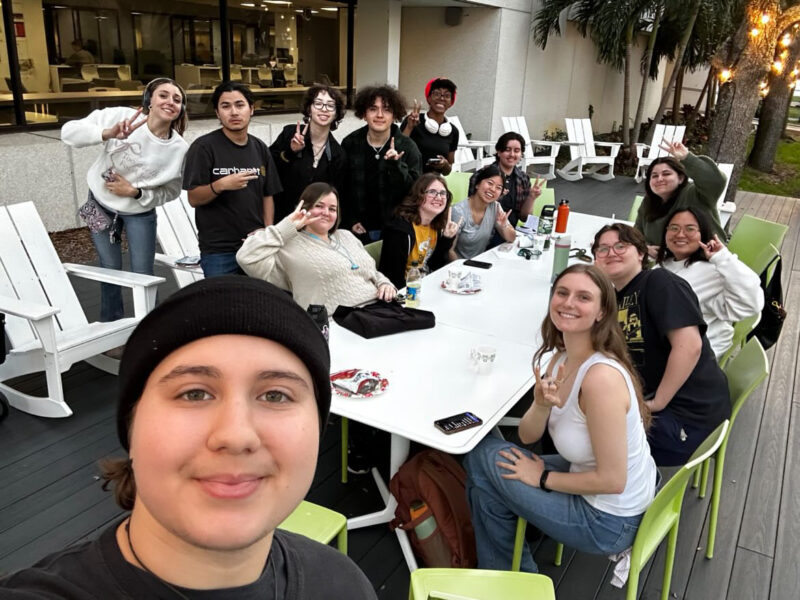Shane Windmeyer, a national advocate for gay rights and GLBT issues on college campuses, visited USF St. Petersburg on Sept. 30, to ask his audience, “What is your Gay Point Average?”
Windmeyer asked four questions to test the audience’s knowledge on the gay community and issues. He asked what symbol and colors represent the gay community—the triangle and rainbow—and also asked to name three TV or movie characters who are either gay in real life or in their roles. He illustrated that TV and movies are how most of us first learn about gay people, offering a limited perspective.
“We still have to laugh at gay/lesbian portrayals,” Windmeyer said. “We usually don’t hear about their real lives.”
Multicultural Affairs invited Windmeyer to visit USF St. Petersburg as part of its Celebrate Diversity events calendar.
Windmeyer visits between 25 and 50 universities throughout the year to talk about GLBT issues. He works to make campuses safe, welcoming environments for GLBT students. He is also the author of “The Advocate College Guide for LGBT Students,” the first college guide profiling the 100 Best LGBT-Friendly Campuses.
Windmeyer’s discussion was intimate and interactive, with sandwiches outnumbering the students, faculty, and staff who came to the event. The small crowd allowed him to interact with all members of the audience. His message was passionate and powerful, reminding the audience that gay, transgender, and bisexual students are often overlooked and misrepresented.
Many GLBT students and faculty feel the need to stay invisible on campus, Windmeyer said. He said this idea of invisibility among the GLBT community allows people to think it is ok to perpetuate jokes and hate toward the group.
One-fourth of GLBT students have reported harassment or discrimination on their campuses, and he has seen this more frequently and blatantly with transgender students.
Harassment and discrimination at different levels is a reality for many students, he said. Being comfortable with one’s sexual orientation can be difficult without a supportive environment.
“Gays don’t live in the world of ‘Will and Grace,’ or ‘Modern Family,’ ” Windmeyer said. “They live in the real world of what it’s like to come out to family and to friends.”
Young adults have varying experiences with coming out, and the reactions they receive from loved ones.
Windmeyer used personal examples to illustrate that being openly gay is not simply like comedic relief characters in television or movies.
Windmeyer’s conservative parents were not fully accepting when he first came out, but they later showed their support. However, his partner has never received support from his family.
The GLBT community still lacks many rights both locally and nationally.
In Florida, anti-discrimination laws do not protect homosexuals or transgender people, and same sex-couples cannot adopt children or marry.
At the university level, only 14 percent of colleges nationwide include sexual orientation in their anti-discrimination clauses.
“The more we come out, the less likely we are demonized, especially for our legal rights,” Windmeyer said.


